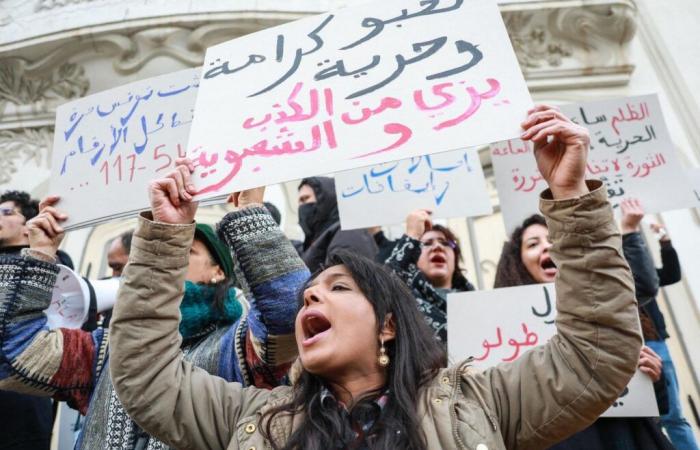It is still possible to express your dissatisfaction in Tunisia. On Wednesday January 22, eleven deputies launched a call to release prisoners of conscience: dozens of lawyers, journalists or activists arrested for their positions. And this Thursday, January 23, National Day for the Abolition of Slavery, defenders of migrants gathered in the center of Tunis, in front of the Le Rio cinema, one of the last places where the authorities tolerate demonstrations. They too denounce the arrest of nine association leaders and the criminalization of solidarity towards foreigners.
“Kind of technocracy”
Despite these valves left to dissatisfied elected officials and civil society, the power in place has hardened again since the presidential election of October 6, 2024, according to a study by the network of independent researchers Network of Researchers in International Affairs (Noria). According to its authors, Colin Powers and Hatem Nafti, a “silent putsch” would even be underway, despite the promises made on public radio by Kaïs Saïed’s brother and campaign director to ease the repression against dissident voices.
“The president has shifted towards a sort of technocracy, to the detriment of political figures”and a “a sort of interregnum persists to the extent that lasting institutions remain to be put in place in many areas”, they write.
This institutional freeze firstly concerns justice: the High Councils of the Judiciary have still not been set up, which leaves control to the Ministry of Justice to manage the careers of judges. Add to this the municipal councils dissolved in March 2023, which were not renewed, participating in the halt to the decentralization process begun after the “Arab Spring” of 2011. On the legislative level, the two chambers of Parliament “unfortunately still do not have a framework governing their operation”, note the authors.
Discreetly
“It is a temporary measure which lasts and which allows us to free ourselves from counter-powersclearly Hatem Nafti. This low-profile palace revolution of the new regime relies heavily on the elites of the former Ben Ali regime to set up the high administration.he continues. The expert, author of an essay on the master of Carthage (1), does not note any mass arrests since the re-election of Kaïs Saïed, but he observes the continuation of a mechanism which aims to cyclically designate a new “enemy of the state”.
-At the beginning of November, four content creators on the Instagram or TikTok networks were sentenced in Tunis to sentences ranging from eighteen months to four and a half years in prison for “dissemination of content contrary to good morals or adopting immoral positions, using inappropriate comments or behaviors that undermine moral and social values”.
For example
This Friday, January 24, the Court of Appeal must rule on the famous lawyer Sonia Dahmani, convicted at first instance on October 24 for having joked on television about the desire of migrants to settle in Tunisia. “What extraordinary country are we talking about? “, she asked.
She, like others, is subject to Decree-Law 54, signed by President Kaïs Saïed in 2022, which prohibits “spreading fake news”. A text which has not been softened, despite repeated requests from several deputies. The prosecutions for “conspiracy” against the security of the State, they too have not been abandoned. 2025 risks being the year of dozens of convictions for those who dare to contradict the executive a little too strongly.
(1) Author of Our friend Kaïs Saïed. Essay on democracy in Tunisia, Ed. Riveneuve, 2024.






